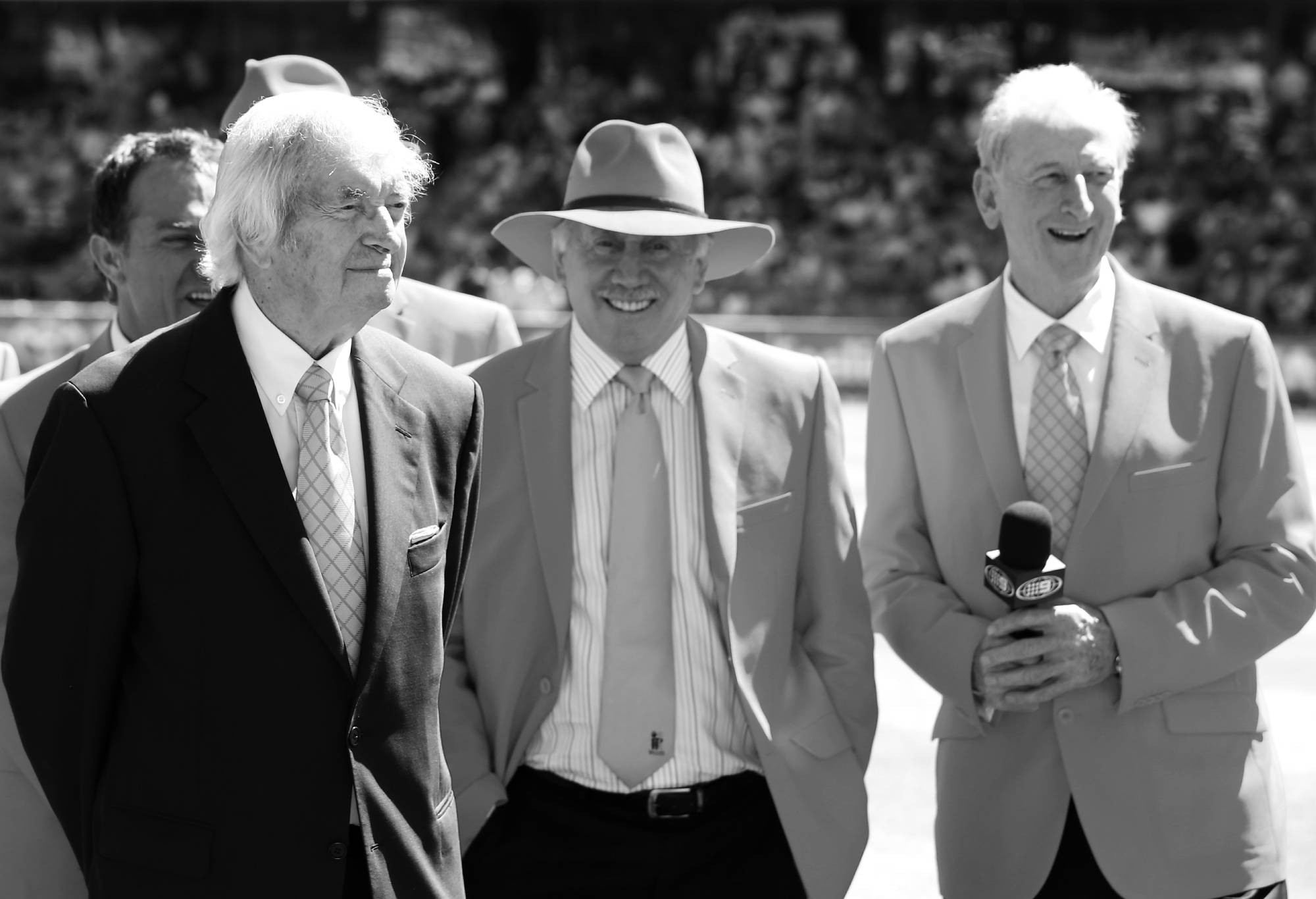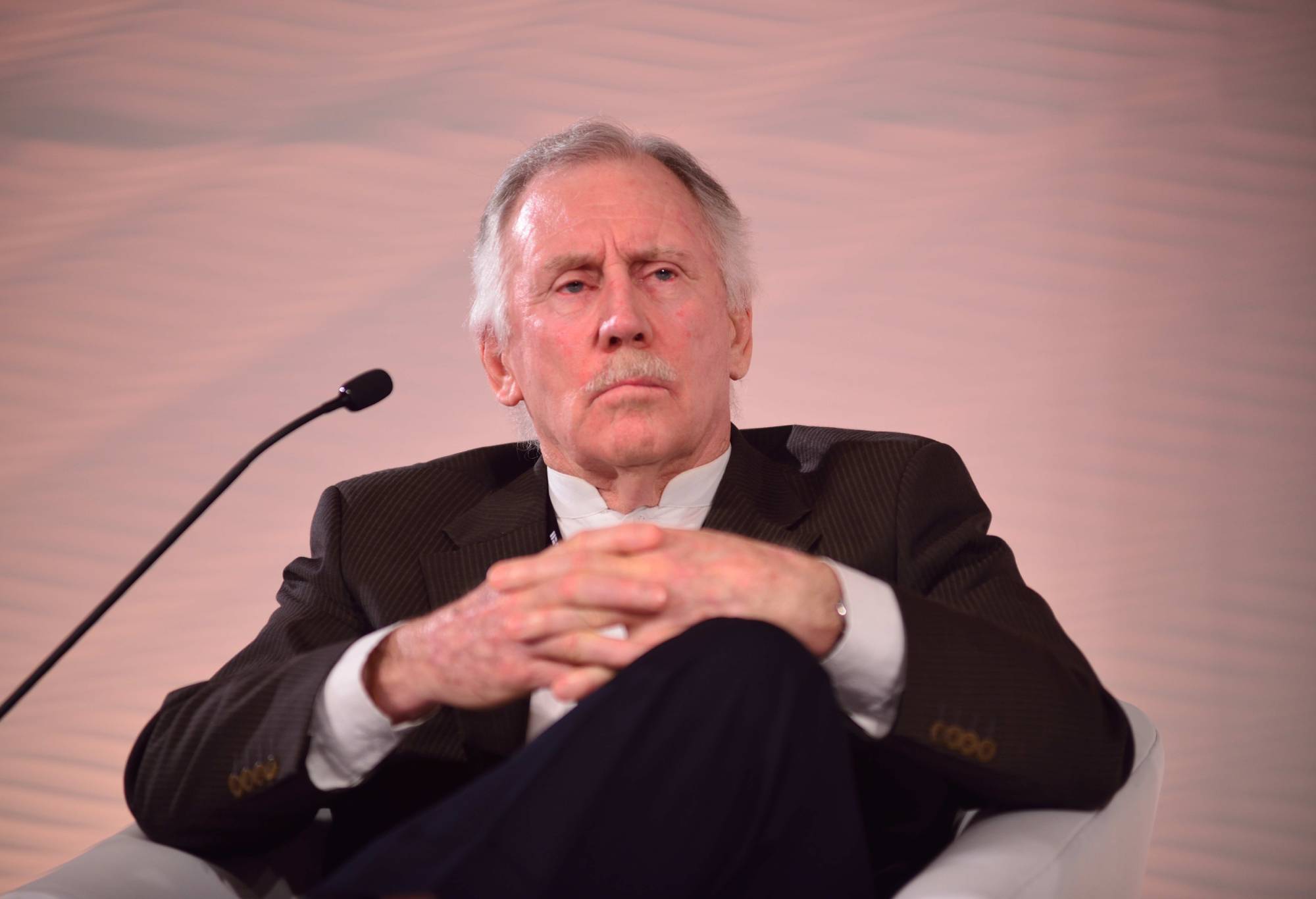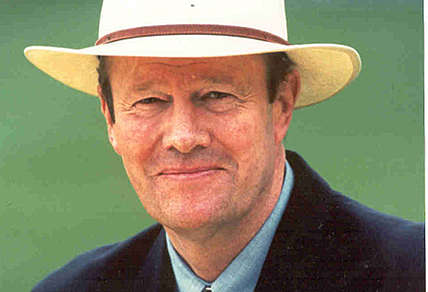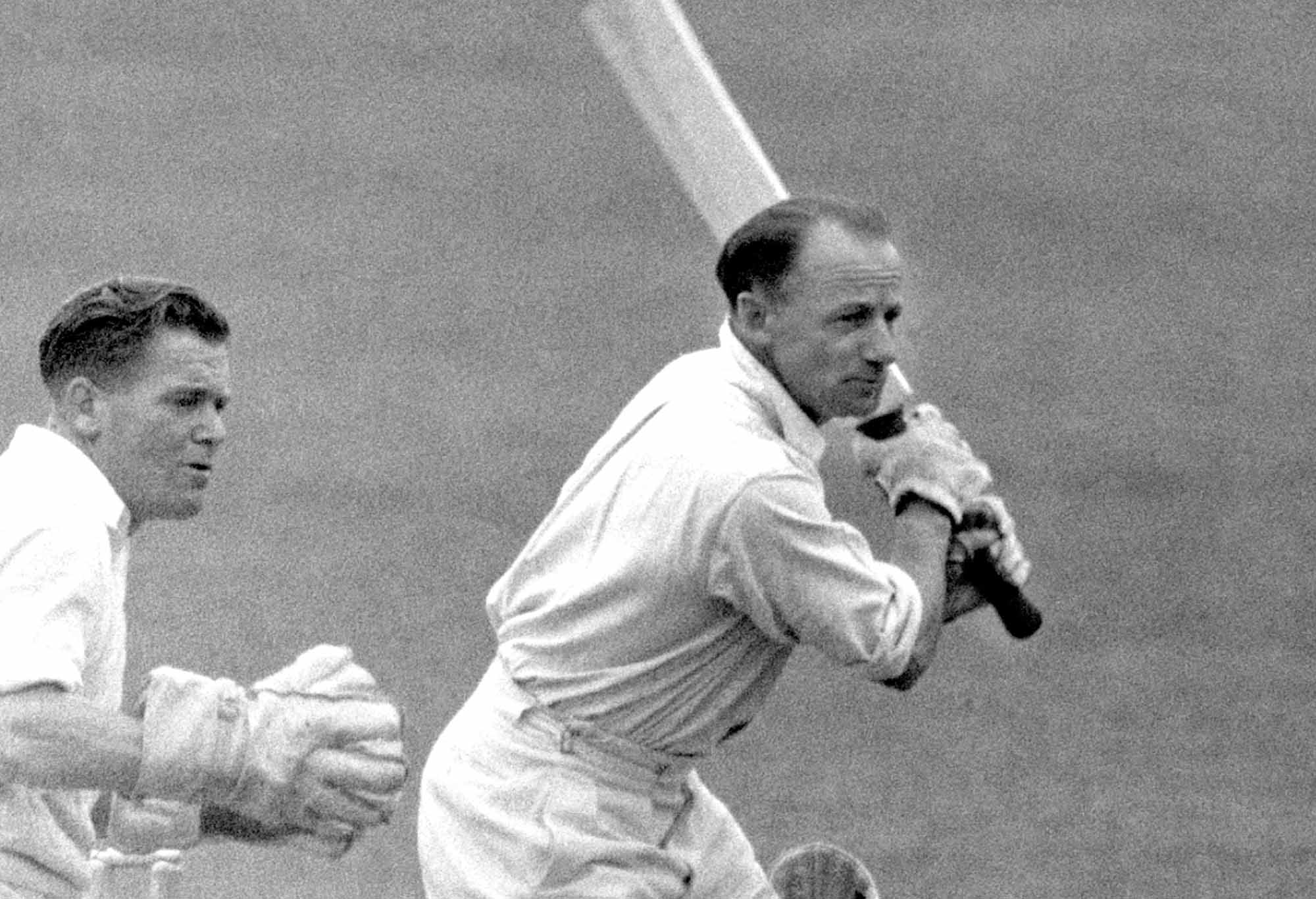
Chappell, who has announced his retirement from commentary, was a vital part of Nine’s coverage which revolutionised the way sport is broadcast in Australian and around the globe alongside Bill Lawry and their late, great comrades Richie Benaud and Tony Greig.
As he approaches his 79th birthday next month, “Chappelli” has decided to finally retire from the commentary caper after 45 years behind a microphone, mainly with Nine, providing a summer soundtrack for millions and in recent years, the ABC and Macquarie radio.
Benaud was the voice of authority, Greig was the stirrer who favoured the visiting teams and Lawry, despite being a dour player, was the showman while Chappell was the commentary team’s conscience.
He said what he thought was right, irrespective of whether it would be popular with players, administrators or fans.

Richie Benaud, Ian Chappell and Bill Lawry in 2013. (Photo by Mark Kolbe/Getty Images)
His blunt style was at odds with the velvet voice of Benaud, the raucous Greig and the occasionally over the top Lawry but the chemistry worked.
As polarising as he was, Chappell has become under-rated as an authority on cricket by younger generations.
The fact that he retired in 1980 means that most of the cricket-loving public these days are too young to remember or weren’t alive when he was in his halcyon days in the 1970s, leading the Australian team in a brash, macho style which unsettled opponents but entertained fans in the lead-up to the World Series Cricket revolution.
Many cricket fans in the past decade in particular viewed him as the typical grumpy old man and often they were right. But that didn’t make his contrarian views wrong.

Ian Chappell. (Photo by Pradeep Gaur/Mint via Getty Images)
Chappell developed an irritating habit of reviving anecdotes which many cricket viewers/listeners had heard too many times to sit through again.
He had a penchant for comparing modern-day stars to players from his era which fell flat with the demographic of fans from the younger generations because it did not resonate with them.
His response when asked on the weekend in an interview with The Sydney Morning Herald about his legacy was typical of his gruff persona: “It’s up to other people to decide what they think of me and some will think I’ve been all right. Some will think I’ve been a prick. That doesn’t bother me one bit.”
Brought up in a middle-class family in Adelaide, Chappell’s anti-establishment views were handed down the generations from his grandfather Vic Richardson, who was a teammate of Sir Donald Bradman’s in the 1930s but not a mate.

Tony Greig.
When he was inducted into the Australian Cricket Hall of Fame in 2003, Chappell used his acceptance speech to highlight the plight of the Indigenous side which toured England in 1868 but was not recognised as a Test tour, calling on those pioneering players to be added to the list of players who have represented the nation.
He’s spoken out against Australia’s treatment of refugees and toured East Timor and the notorious Baxter Detention Centre with the UNHCR – the United Nation’s refugee agency – to help raise awareness for the plight of asylum seekers.
Politicians, administrators and the upper class were constantly in his crosshairs.
Diplomacy was not his strong point, such as the time controversial English broadcaster Piers Morgan tried to introduce himself to Chappell and was met with a swift reply of “nah mate, you’re a dickhead”.
World class at holding a grudge, he openly admitting to not trusting Bradman during his run-ins with him as an administrator in the 1970s, labelling him “a vindictive little bastard”.

Sir Donald Bradman. (PA Images via Getty Images)
Lucky for him that John Howard wasn’t Prime Minister at the time – he would have been jailed for treason.
Chappell’s ongoing feud with Ian Botham continues to this day. Legend has it that the Botham saga kicked off during a bar-room altercation in 1977 and nearly came to blows again more than three decades later when they ran into each other at the Adelaide Oval car park.
Former Australian Test skipper Kim Hughes was another who refused to be interviewed by Chappell during the final Tests of his captaincy because he believed the Nine commentator had been undermining him due to his poor results since assuming the role from Greg Chappell.
Steve Waugh, who he described as “the most selfish cricketer he’d seen” was barely on speaking terms with Chappell when he’d interview him pre-game at the toss.
Cranky, cantankerous, curmudgeonly, however you want to describe Chappell, he meant what he said and he said what he meant.
One other aspect of Chappell’s post-playing days career was that he was one of the few high-profile sportspeople who did not need, want or use a ghostwriter for his columns in a variety of publications, including Inside Cricket and NewsCorp newspapers.
Whereas some sporting legends will nominate their chosen topic for a column and stick to it, Chappell was known for working with editors on what angle to take.
And, of course, he didn’t need much of a shove to put his name to a provocative viewpoint.
Many sports commentators all over the globe these days seem too concerned with being friendly with the stars of today. That can be part of the role but it should not prevent the experts in the commentary box from giving their honest opinion, whether you like it or not.
And that’s what you got with Chappell.
Whether he grated on you or you thought he was great, Chappell was the kind of straight-talking elder statesman that every sport needs.

Leave a Reply